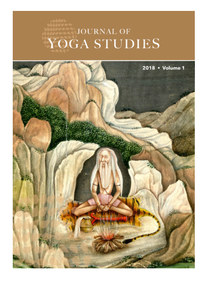|
Some informed readers will know that one of the most famous books about yoga is Paramahamsa Yogananda's Autobiography of Yogi, which was first published in 1946. For many, it is the book that sparked a spiritual revolution. If the video doesn't play, click here. |
|

This article by Philip Deslippe; which appears in the inaugural edition of the Journal of Yoga Studies, maps the terrain of early American yoga in relation to Yogananda, and another important yogi, Swami Vivekananda. It also tempers some of the hagiographic claims made in the short film, above, about the book.
The point of this short discussion about this Autobiography of Yogi is that, over the past several years, I have often chuckled at the possible title to my own biography being, Autobiography of a Bhogi. Now, for the uninformed, a common definition of yogi relates to someone who aspires to be chaste, disciplined, and focused on the path of yoga. A योगिन् m. yogin is a contemplative saint or someone possessed of superhuman powers. Perhaps, however, the tamasic and rajasic forces are too well-developed in me? I will never be anything more than a humble bhogi; which is the the antonym of a yogi. Or, rather, a भोगिन् adj. bhogin is someone devoted to enjoyments. With this in mind, I will irregularly add articles to this series. The contents of which will cover really anything I feel like writing about in relation to myself, yoga, and of course bhoga. Hopefully, you too will become devoted to enjoyments, like me.
